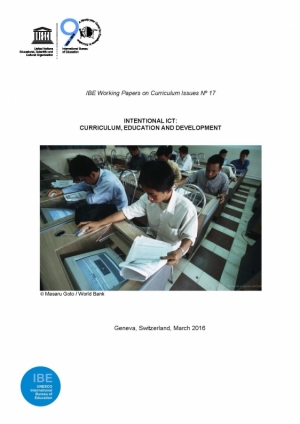Information and communication technologies (ICT) hold tremendous promise for society at large, and in particular, in shaping social and economic development. On their own merit, ICT have been determined to be profoundly advantageous to society. ICT reduce the cost of communication thereby increasing flexibility and capacity for global trade of goods and services. ICT can also drive global productivity and economic growth through continual returns from knowledge creation and innovation. Additionally, ICT can potentially promote social development through communication, collaboration, and knowledge sharing among people.
What motivates ICT usage in education? Is education anticipated to produce better users and consumers of ICT for the 21st century? Or, are ICT expected to improve the quality of education for all members of society? Perhaps both.
This paper argues for a new intentional ICT approach in which a relevant, sensible, and coherent curriculum guides the appropriate use of ICT for educational quality improvement. This approach focuses on the value of ICT to curricula efforts for educational improvement. In doing so, we may be better able to articulate the direct links between ICT in education and economic and social development.

